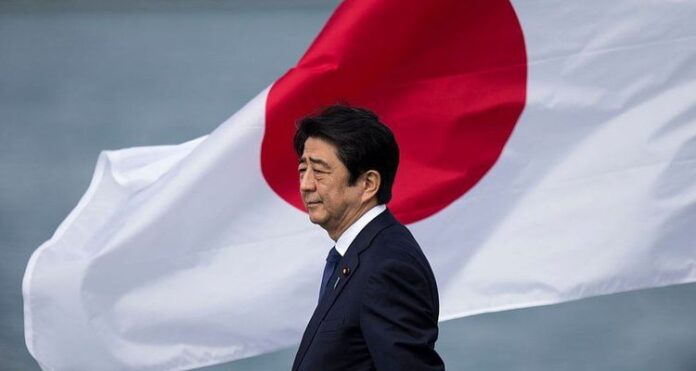| Translate This News In |
|---|
Shinzo Abe’s official funeral, which sparked protests and even a man who may have burned himself on fire, has become a flashpoint for debate. But why has the burial on September 27 become such a contentious subject?
How was Abe murdered?
On July 8, a shooter in the Nara area shot and killed Abe as he was promoting his government’s Liberal Democratic Party (LDP).
According to reports, his alleged killer hated the Unification Church because his mother had given substantial sums to the organization and thought Abe was associated with it.
Friends and relatives gathered in Tokyo for a private funeral service for Abe. Numerous people gathered in the adjacent streets to offer prayers and flowers.
Why have a state burial?
Only one other state funeral for a former prime minister was held in Japan during the post-war era, and that was for Shigeru Yoshida in 1967.
However, Abe was both Japan’s longest-serving prime minister and its most well-known politician both domestically and internationally.
A formal funeral will enable world leaders to express their condolences and demonstrate that Japan “will not give in to violence,” according to Prime Minister Fumio Kishida.
The event is scheduled for September 27 at Tokyo’s illustrious Budokan venue, and world leaders like Australian Prime Minister Anthony Albanese and US Vice President Kamala Harris are anticipated to participate.
How did people respond?
The decision instantly sparked controversy, with opposition MPs claiming Kishida had exceeded his authority by sanctioning the funeral.
According to polls, the opposition is progressively increasing.
NHK, a national broadcaster, showed that in July, 38% of respondents were opposed to the idea, but by August, 57% were.
Why do people disagree?
According to Yamamoto, there are two key causes for the funeral’s increased controversies: “questions about Kishida’s decision-making… (and) the problems surrounding the Unification Church and its ties to the LDP.”
Following Abe’s passing, the LDP acknowledged that about half of its members had affiliations with the divisive sect, whose adherents are commonly referred to as “Moonies” after the movement’s founder Sun Myung Moon.
Although Kishida has sworn that the party will cut all ties, the discoveries and increased criticism of the church have hurt public support for his administration.
Despite his record-breaking term, Abe was not widely liked in Japan.
His nationalist ideals and ongoing accusations that he engaged in cronyism stoked widespread hostility.
Does price matter?
The government estimates that the burial will cost about 1.7 billion yen ($12 million).
That is a significant increase over the government’s initial estimate of 250 million yen, which did not include expenses for hosting foreign guests or security.
Polls reveal that Kishida hasn’t done much to change the situation despite acknowledging the unhappiness about the funeral and responding to inquiries during a broadcast special session of parliament.


















